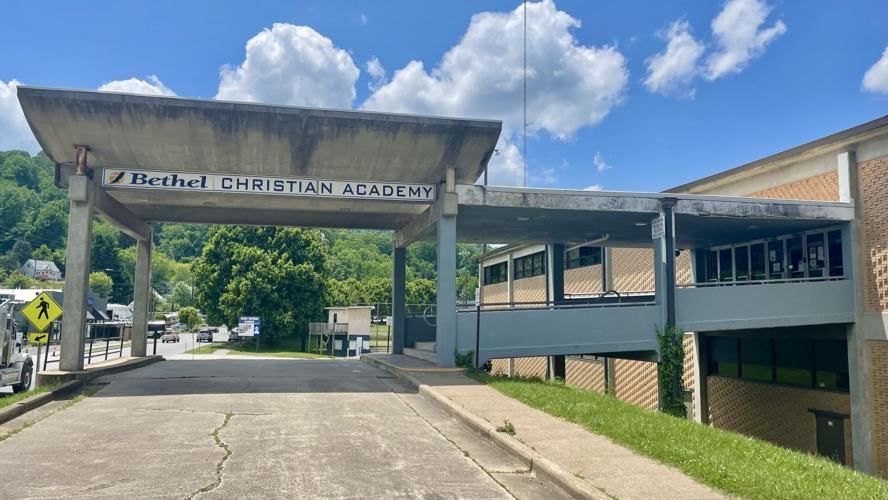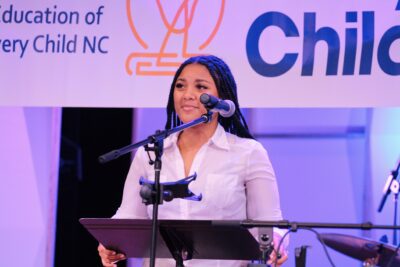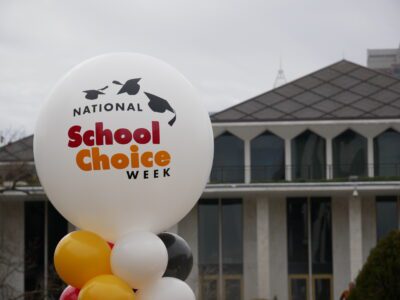
|
|
This article originally appeared in The Mountaineer, a community newspaper in Waynesville, North Carolina.
North Carolina has one of the newest — and least regulated — private-school voucher programs in the country.
Given those traits of the N.C. ‘school choice’ program, which offers financial aid for students to attend private school regardless of income, a debate has emerged over the program’s accountability.
“In North Carolina, I mean, we’re slack. We’re really slack on this, as far as regulating private school vouchers…. There are just so many factors that pull into it. That’s the main thing, there is no equity,” said Jimmy Rogers, a member of the Haywood County Board of Education.
“The private schools, the Christian schools, they do a wonderful job. … The question is, where does the money go?” questioned Chuck Francis, Haywood school board chairman.
North Carolina implemented its voucher program last fall. Other states require private schools accepting vouchers to require state testing, certified teachers, regulated curriculum and regulated school hours and days. North Carolina requires none of those boxes to be checked.
In this state, private schools are required to operate for a school term of at least nine calendar months, keep attendance and immunization records, and administer a national standardized test that covers English grammar, reading, spelling and math. That test does not have to be the same as the one used by N.C. public schools however, making performance comparisons difficult.
Private-school testing
Most private schools regularly assess student performance, said Kwan Graham, director of Community Engagement for Parents for Educational Freedom in North Carolina, an advocacy group for school choice options.
“The majority of all private schools have some form of standardized testing,” Graham said. “Every year they are testing their children. In their grades, they do assessments, they do standardized testing. Then in high school, their children, or their students are taking standardized ACT and AC prep and are prepared for college.”
Graham has spoken at Haywood County private schools like Bethel Christian Academy, that is pre-k through grade 12. Bethel students take the IOWA national standardized test.
“We have always tested at Bethel Christian Academy,” said its principal, Clara Deaver. “We use the Iowa basic skills right now. And that is a nationally recognized standardized test that compares us against national averages, not just North Carolina.”
Accountability
The challenges of comparing public and private school student performance range from differing testing systems to the fact that private schools are not required to release as much information as public schools, though some of that information is available through the state. For example, because vouchers involve public tax money, the number of vouchers a school receives is available through the N.C. Division of Administration.
Local private-school administrators, however, were reluctant to share information on their use of the private vouchers.
“I wouldn’t be able to give vouchers (numbers), because I really do think that’s a matter of privacy, or a privacy issue,” Deaver said.
When The Mountaineer reached out to Haywood Christian Academy, its principal also refused to provide voucher numbers but said her school averages 140 students.
“We do receive new families on the voucher, but we also have many private-pay families as well,” HCA Principal Kelli Herbert said in an email. “I do not have time to dig into the specifics, as this is our busiest time of year, nor do I feel it is necessary to share all of those details at this time.”
“According to our contacts through the scholarship program, the demand for funding from families far exceeded the funds available,” she said in a separate email.
Voucher tiers
Funding for vouchers is based on ‘tiers’ that are determined based on household income. Tier 1 recipients can get up to $7,468 per school year. Tier 4 recipients receive a minimum of $3360 per voucher, depending on household size and income.
The North Carolina State Education Assistance Authority (NCSEAA) administers the Opportunity Scholarship program and goes through approval process before making a direct payment to the school, said Graham, adding, “there are accountability measures in that.”
Deaver said the vouchers give parents the opportunity to be involved.
“I’m not saying public school doesn’t do that, but parents here would rather have a say in what their child is learning,” Deaver said.
“We look at both of these programs as taxpayer money, and private school families pay taxes in the state of North Carolina,” Graham said. “Parents who are very active in school choice, look at a number of other things within the private school, (including) the quality of their teacher, the quality of school leadership. Parents themselves are doing the research to look and find schools that are quality.”
Charter school accountability
Shining Rock is not part of the Haywood County school system. It is a public school, however, so Shining Rock is legally entitled to the same per capita funding for its students. Shining Rock gets $1.7 million in local funding from the county, which passes through Haywood County Schools budget enroute to Shining Rock.
“Charter schools, they don’t have to follow the same rules, but yet they’re getting the same money. Private schooling, they’re getting money,” Rogers said. “Choice is okay, because that’s our freedom, that’s our right. But if you’ve got a good public school system, you need to support it with your taxpayer dollar.”
However, Josh Morgan, the principal of Shining Rock, strongly contests the claim that charter schools are not held accountable.
“We get a state report card, just like every other public school in the state,” he said. “The reason I feel so strong as to call this a lie is, unlike the county schools, if we’re not doing a good job in educating kids and being responsible with our finances, and with our management … they can take our charter and they can close the school.
“If Haywood County is doing a bad job with any of those things, they’re not going to give Haywood County to Tennessee. … The state can’t come in and close the county schools.”
Morgan said as a charter school leader, he will always embrace the right to choose.
“Every child learns differently, every child and family have different needs, and the days of education being based out of Webster’s Blue Book and one size fits all, that doesn’t work,” Morgan said. “We have to be building citizens who are prepared for a diverse economy. And we have to diversify our educational offerings to do that.”





